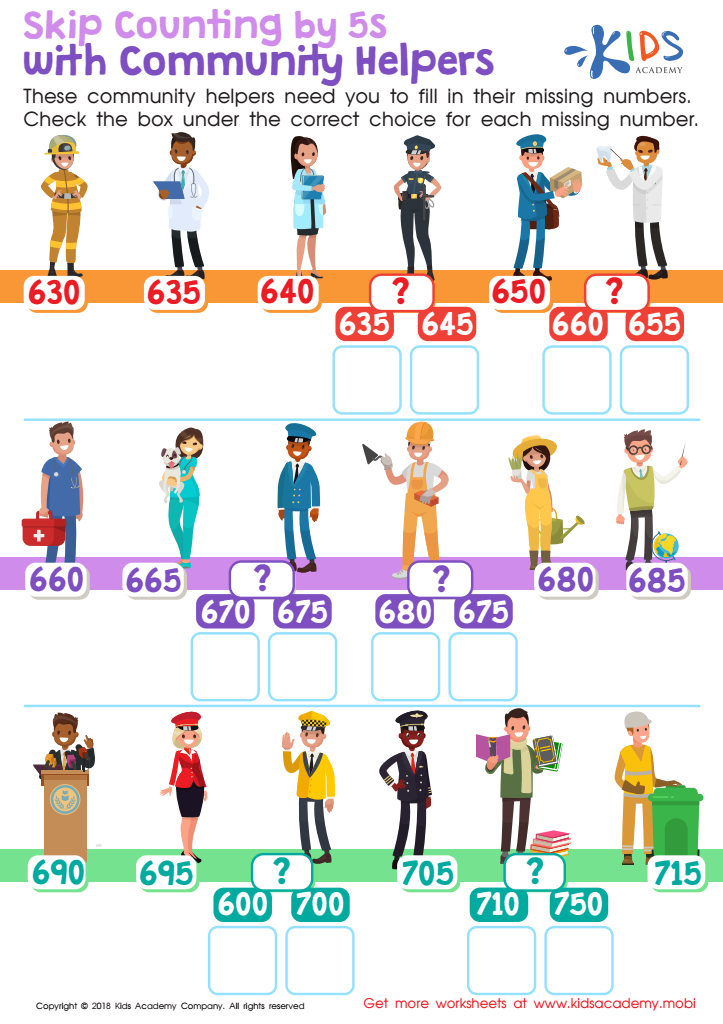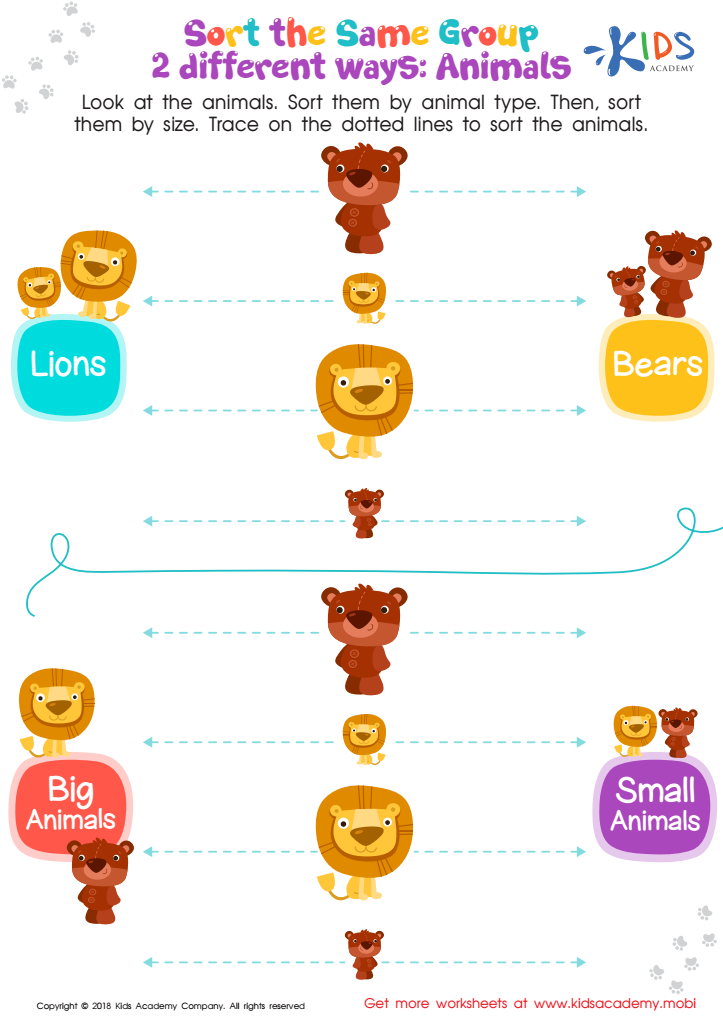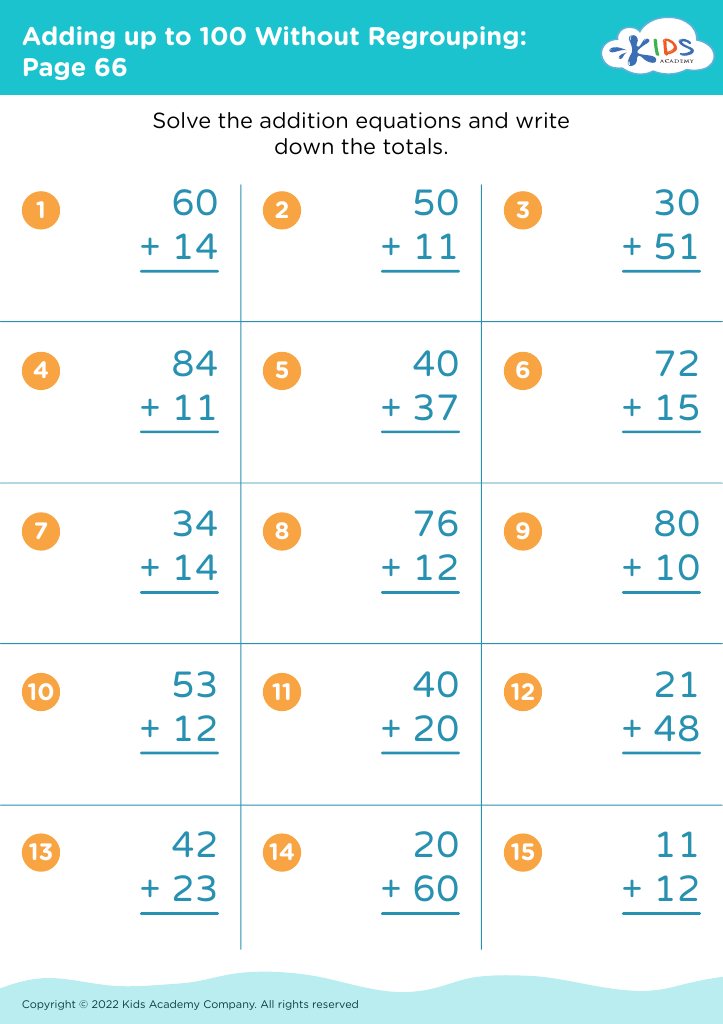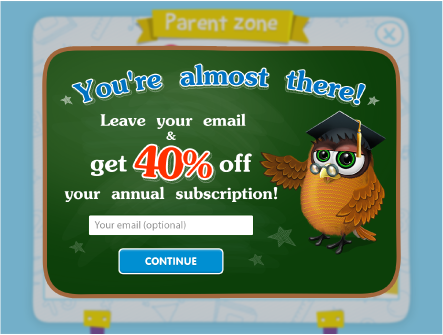Recognition skills Worksheets for Ages 5-7
4 filtered results
-
From - To
Boost your child's recognition skills with our engaging worksheets designed for ages 5-7! These educational resources are perfect for young learners, fostering essential skills in identifying letters, numbers, shapes, and colors. Each worksheet incorporates fun activities that promote both recognition and comprehension, making learning enjoyable. Whether your child is at home or in the classroom, these printable worksheets provide varied exercises to cater to different learning styles. Help your little ones build a strong foundation for future academic success while nurturing their curiosity and confidence. Explore our collection today and support your child's early learning journey!


Skip Counting by 5s With Community Helpers Worksheet


Sort the Same Group 2 Different Ways: Animals Worksheet
Recognition skills are essential for children aged 5-7 as they lay the foundation for future learning and development. During these formative years, children are rapidly absorbing and processing information about the world around them. Recognition skills involve the ability to identify and understand letters, numbers, shapes, colors, and even social cues. Mastering these skills not only enhances a child’s cognitive development but also boosts their self-esteem and confidence.
Parents and teachers should prioritize recognition skills because they are crucial for early literacy and numeracy. For instance, recognizing letters helps children learn to read, while recognizing numbers aids in the development of basic math concepts. When children can identify and make sense of their environment, they become more engaged and motivated learners.
Furthermore, strong recognition skills contribute to social development. Children who recognize facial expressions and body language can better navigate social interactions and build relationships with peers.
Ultimately, cultivating recognition skills in young children equips them with the tools they need for academic success and emotional intelligence, fostering a love for learning that continues throughout their educational journey. Investing time and resources in these skills will yield long-term benefits for both children and their educators.


 Assign to My Students
Assign to My Students





















